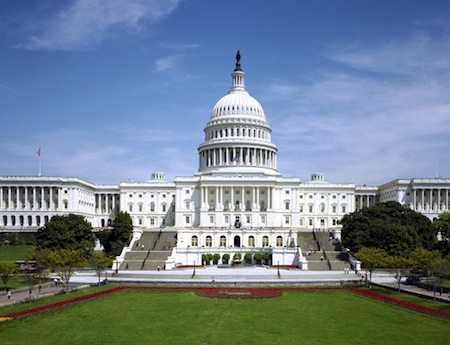House Dems Accuse Broadcast, Cable of Promoting Extremism
Cite Capitol insurrection as providing evidence; say journalistic integrity called into question

The smarter way to stay on top of the multichannel video marketplace. Sign up below.
You are now subscribed
Your newsletter sign-up was successful
Move over social media, traditional media like broadcasting and cable are now in Congress' sites for what top Democrats say is those media outlets' role in "promoting disinformation and extremism," suggesting the Capitol insurrection provided evidence of that.
Also Read: Rep. Frank Pallone Says Internet Is Broken
The House Energy & Commerce Committee said Wednesday (Feb. 17) that it will hold a hearing Feb. 24 entitled “Fanning the Flames: Disinformation and Extremism in the Media.”
But in this case, those identified as doing the fanning are not Twitter or Facebook but broadcasters and cable networks.
“The prolonged severity of the COVID-19 pandemic and the attack on our Capitol on Ja. 6 have driven home a frightening reality: The spread of disinformation and extremism by traditional news media presents a tangible and destabilizing threat,” said House E&C Chairman Frank Pallone (D-N.J.) and Mike Doyle (D-Pa.). “Some broadcasters’ and cable networks’ increasing reliance on conspiracy theories and misleading or patently false information raises questions about their devotion to journalistic integrity," they added. "We look forward to hearing from media experts about what is being done and what more can be done to address this growing problem moving forward.”
Also Read: Networks Hustle to Cover Capitol Coup
They did not identify any of the networks or broadcasters they were talking about, but recently media critics including Margaret Sullivan and columnist Max Boot in the Washington Post have criticized Fox News Media coverage.
The smarter way to stay on top of the multichannel video marketplace. Sign up below.
Boot has suggested a return of the fairness doctrine. Some Democrats have blamed the elimination of that doctrine by a Republican FCC back in 1987 for the rise in conservative media and media figures like the late talk show host Rush Limbaugh. The FCC doctrine required broadcasters to seek out opposing viewpoints on controversial issues of public importance.
The National Association of Broadcasters had no comment on the hearing.
Contributing editor John Eggerton has been an editor and/or writer on media regulation, legislation and policy for over four decades, including covering the FCC, FTC, Congress, the major media trade associations, and the federal courts. In addition to Multichannel News and Broadcasting + Cable, his work has appeared in Radio World, TV Technology, TV Fax, This Week in Consumer Electronics, Variety and the Encyclopedia Britannica.

